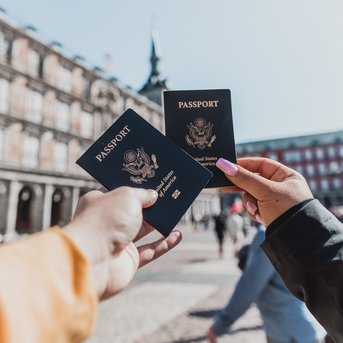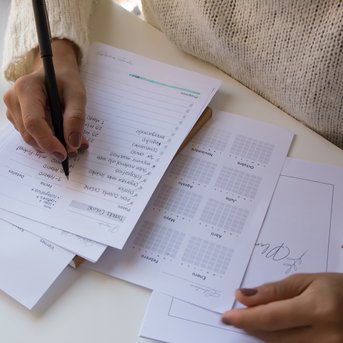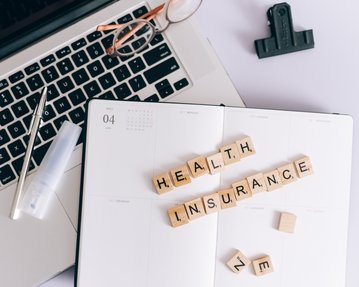Welcome to Germany! Have you received your letter of admission? Then it's time to start planning your study abroad programme at SRH University. An important milestone is your visa and residence permit. We have summarised the most important questions for you!

Here you can find everything you need to know about visas and residence permits

Welcome to Germany
Have you received your letter of admission? Then it's time to start planning your study abroad programme at SRH University. An important milestone is your visa.
Submit your application as early as possible, as it can take several weeks or months before you receive an appointment for your application, which varies considerably depending on the embassy. The processing time for your application can also take several months. The sooner you can take care of it, the better.
Who needs a visa?
Actually, anyone who wants to stay in Germany for longer than three months. However, there are a few exceptions, which you can find on the right.
If you are not quite sure whether you need a visa or not, check with the German embassy in your home country or in the country where you live whether you need an entry visa or not.

Which visa do I need to apply for?
Please apply for a national visa for study purposes (D visa) if you would like to study at SRH University for at least one semester (6 months). There is also a visa for study application or a visa for language acquisition; if you have been admitted to us, please apply for the visa for study purposes.
You cannot apply for a Schengen visa to enter Germany to start your studies; this is only possible for tourism purposes or short courses (summer schools and the like). A Schengen visa will never be converted into a residence permit. If you have applied for a Schengen visa, you can enter the country but must leave within 90 days and then wait 90 days before you can apply for a new one. There are situations where this is a temporary solution, but you would still have to apply for a visa for study purposes.

What documents do I need for my visa?
The documents you need for the visa for study purposes are almost the same everywhere; depending on the country, the documents may be slightly different or you may need additional papers. Therefore, visit the website of the German embassy where you will apply for the visa to make sure you have all the information you need.
The typical documents are the following:
- Letter of admission from the SRH
- A valid passport with at least two blank pages
- A recent passport photo (note whether there are any special requirements for the photo, e.g. light-coloured background or the like)
- Proof of your funding, preferably a blocked account, scholarship certificate or the like
- As well as some other application documents, e.g. travel insurance or German health insurance.
Questions & Answers
Residence permit
Have you received your letter of admission? Then it's time to start planning your study abroad programme at SRH University. An important milestone is your residence permit.
Your residence permit is only valid in conjunction with your passport. If your passport expires before your residence permit, your residence permit is also no longer valid. If you leave Germany for more than 6 months, your residence permit will automatically expire.
- Start looking for accommodation and find a flat (room in a shared flat, flat, etc.). You will need a correct address in order to finalise your registration.
- Once you have moved into your new flat/room, make an appointment at the Bürgeramt to register your address. Please note that this must be done within 2 weeks of your moving date.
- Don't forget to get German health insurance. You cannot start your studies without proper health insurance.
- You have a national visa (D): Remember that you must convert your current visa to a residence permit within 90 or 180 days of your arrival in Germany (please check the entry stamp and visa conditions). This must be done at the immigration office in your city.
- You do not need an entry visa: Please apply for your residence permit within the first 90 days after arrival in Germany (please check the stamp in your passport).
- Some students, e.g. exchange students who are staying in Germany for less than a year, can obtain a national (D) visa valid for up to 12 months instead of a national entry visa for 90 days. These students do not need to apply for a residence permit after their arrival in Germany.
- Swiss nationals: Please apply for a "Residence Permit-Switzerland" within 90 days of your arrival in Germany.
Further information can be found in the "Student Welcome Guide", which you will receive together with your admission documents.


How & where do I get my residence permit?
At the time you need to apply for or extend your residence permit, we recommend that you live in the city where you are studying. If you do not live in the city, the Immigration Office can probably only give you a fictional certificate of 3 months.